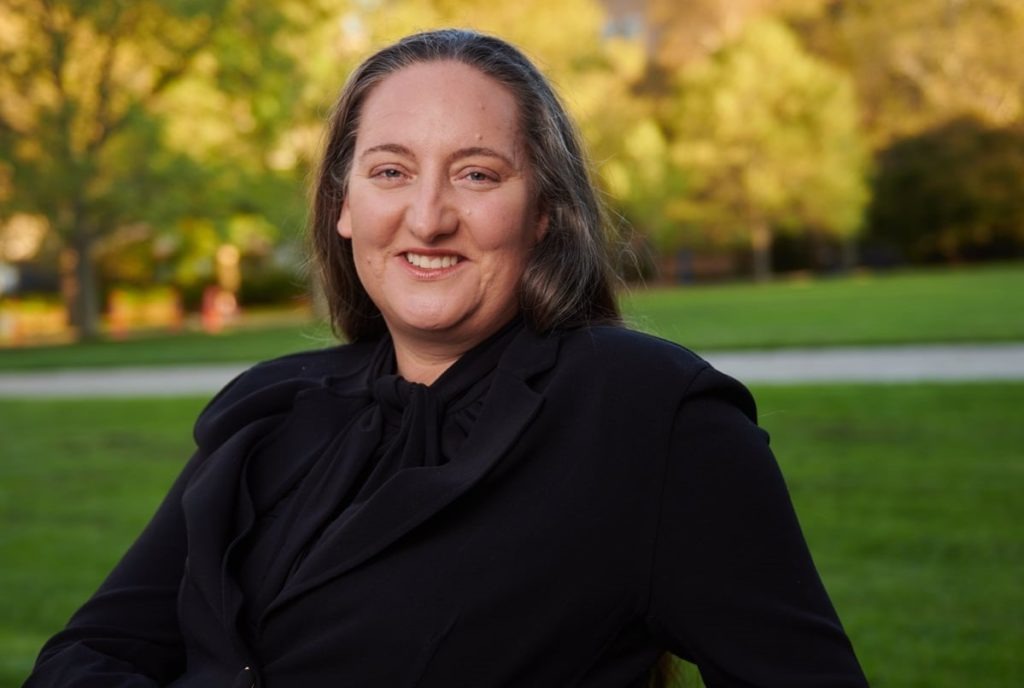I hadn’t thought about ‘Norm’, a television character that featured across public health campaigns during my childhood, until reading Professor Cassandra Szoeke’s new book Secrets of Women’s Healthy Ageing.
But I can picture him: the cartoon character sitting on a couch with his large belly, beer in hand, watching the television and popping up in loungerooms for almost 20 years.
He told Australians to get out and exercise. To eat healthily. He warned Australians about obesity and heart disease.
And he did a great job of doing so.
Just one problem. The message was largely aimed at men, the “normal” men of Australia he was designed to depict.
As Professor Szoeke, a neurologist, professor of Medicine and clinical researcher at the University of Melbourne, outlines in the latest episode of The Women’s Health Project, the key female character in these ads in aerobics gear – who we assume to have been Norm’s partner – would be the one telling him to get up and moving.
“And so the take-home message from that for a population was that women have to help their men get off the couch,” Professor Szoeke says. But the realities facing women in terms of heart disease, healthy eating and healthy body mass index still required significant attention.
During this latest instalment of the Project, we touch on dementia, heart disease and the impact of social media on women – all big topics which we’ll come back to again – but the ultimate goal is to consider the loads that women take on.
In the case of Norm as well as other public health campaigns, this load is in the role women have long been asked to take on in terms of addressing the health concerns of the men in their lives.
But of course, there are other loads. There is the load of paid work, and shifting demographics and ways of working that have not kept up with changing family patterns and dynamics.
There’s the load of unpaid work that comes with caring for children, older parents, relatives and those with a disability – alongside domestic roles and responsibilities at home.
There’s the mental load, taking on the thinking and organsing for a household, and even things like the research and decision-making that’s needed for sorting out aged care for a loved one.
There’s the load of sexism and violence. For some women, there are the added loads of racism, ageism, and disability, as well as a socio-economic disadvantage and the fear of retiring into poverty.
And of course, there’s the load that comes with a woman having her pain dismissed, her symptoms ignored. Or with quietly having to contend with the physical and emotional pain of miscarriage, of childbirth, of menopause.
Do we know enough about how these loads are impacting women’s health? For one, we went years without a Time Use Survey in Australia, and even the data such a survey can provide is limited.
Professor Szoeke’s book is based on a 30-year project that’s seen hundreds of women in Australia studied from their mid to late lives, giving insights into how we can better promote overall wellness and achieve a longer and healthier life.
The book highlights some of the best insights to have come from this study, as well as other pieces of research, particularly in identifying factors leading to some of the biggest causes of death among women: dementia and heart disease.
Indeed, Professor Szoeke urges more consideration be given to “hearts and brains” when it comes to addressing women’s health, rather than only what she describes as “bikini health” – that is anything covered by a bikini.
“The number one leading cause of death in Australia for women is dementia,” Szoeke says. “The number two leading cause of death is heart disease. Number three leading cause of death is stroke, which is a blood vessel blockage to the brain. So brain and heart are right up there, three leading causes of death. And yet when I say ‘women’s health’ people think other things.”
In 1990, getting this research off the ground was particularly novel. The principal investigator at the time, Professor Lorrain Dennerstein AO, was a psychiatrist who had been getting referrals for women who were considered to be “hysterical” or suffering from “empty nest syndrome”. She worked with the university to set up a new office called the “Office for Gender and Health”. Those things just didn’t exist.
Professor Szoeke notes how additions have been made to the research as women have gotten older, including the impact of caring for grandchildren — another ‘load’ that women often take on.
“We thought the cognition was going to be better in women looking after their grandchildren. And it was! However, if they were looking after their grandchildren five days a week or more, they had worse cognition, then the grandparents who were not allowed to look after their grandchildren because of their cognition.”
Delving into this further, the team found stress-related issues associated with the pressures of caregiving.
Professor Szoeke also highlights how the research shows the “secret” to exercise: just do something, every day. That something is likely to change as you get older, but just keep getting in that 30 minutes or more, every day, will make a huge difference.
Back to Norm. He did a lot of good in addressing things like heart disease in men. And we know that when women are educated on public health, their families and their entire communities ultimately do better.
But we can’t forget her health in the process.
This podcast is independently created by Women’s Agenda and proudly sponsored by Organon, a pharmaceutical company dedicated to a better and healthier every day for every woman. Women’s Agenda is published by Agenda Media, a 100% female-owned and run media company.


